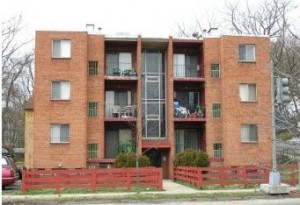Posted by Teresa on August 20, 2010 under Housing Trends | 
 The cost of tuition is bad enough at colleges and universities; but did you know room and board averages nearly $8,600 at private schools and over $7,000 at public schools? Parents are increasingly looking at purchasing investment property for their kids to live in, and then to rent when the child graduates.
The cost of tuition is bad enough at colleges and universities; but did you know room and board averages nearly $8,600 at private schools and over $7,000 at public schools? Parents are increasingly looking at purchasing investment property for their kids to live in, and then to rent when the child graduates.
There are several advantages to this option:
1. Purchasing offers tax benefits that are not available when paying college room and board. The interest paid on a mortgage is usually tax-deductible; college room and board is not.
2. Owning rental property offers parents additional tax benefits, with deductions for taxes, repairs, upkeep and depreciation. Travel to inspect, purchase and check on the property is also deductible in most cases.
3. Avoiding the housing shortages that many universities are experiencing—along with the steep fees that go with them.
4. Moving a student’s possessions back and forth can be either a time-consuming hassle or a storage nightmare. Keeping it in one place year-round is much more convenient. It can save parents time and money.
5. Whether parents purchase single-family homes, condos or duplexes, there are opportunities to collect rent from other students. A multi-bedroom house means roommates—and rents. A duplex can provide additional income while providing a student a place to live year round.
There are downsides to becoming an absentee landlord, too. All factors must be considered, but owning rental property while the kids are in college is a great choice for many families. Learning all about becoming a landlord is essential, and should include visits to a lawyer and tax advisor. Property buyers should check all the applicable leasing codes in the city and state where the property would be located, and always conduct proper tenant screening on all residents. (You may decide to exempt your own child.)
The contents of this article are intended for general information purposes only, and should not be relied upon as a substitute for obtaining tax advice applicable to your situation.
Posted by Teresa on August 17, 2010 under Landlord Tips, Tenant Screening & Background Checks | 

- An incomplete tenant background check may not provide information on a lease applicant’s employment and income.
- Verifying the employer listed by a lease applicant will indicate his or her honesty—or lack of it. If you call the number provided and the telephone is not answered professionally (or at all) you might have reason to suspect the potential tenant is not being truthful. Certainly, exceptions apply—especially for small businesses.
- Long-term employment is an indicator of stability. However, recent economic difficulties have put many talented and dedicated employees out of work. Landlords may need to be flexible on their standards until the economy recovers. Requiring all tenants to have held their jobs for two years, for example, could mean a record number of vacant rental units for you.
- It can help you determine whether a potential tenant’s income source is lawful or illegal. Sure, it’s nice to have tenants who have plenty of cash to pay their rent. But if they’re not legally employed or cannot provide proof of income, like pay stubs, you could be asking for big trouble.
- Verifying employment can give you peace of mind. Renting to qualified tenants with jobs is the number one concern of most landlords. Confirming your lease applicants’ employment can keep your cash flow healthy and reduce turnover in your rental properties.
The best time to thoroughly check out a tenant’s employment situation is before the lease is signed. Following this tenant screening procedure on every applicant will ensure that you are not discriminating against any protected groups and that you will be leasing to only qualified tenants.
Posted by Teresa on August 12, 2010 under Housing Trends | 
 Politicians and federal policymakers don’t always agree on how to best serve the U.S. economy and needs of taxpayers. One thing everyone can admit is that Freddie Mac and Fannie Mae nearly collapsed in the recent housing crisis, with a huge loss of taxpayer money.
Politicians and federal policymakers don’t always agree on how to best serve the U.S. economy and needs of taxpayers. One thing everyone can admit is that Freddie Mac and Fannie Mae nearly collapsed in the recent housing crisis, with a huge loss of taxpayer money.
Some critics think an overhaul of the mortgage giants is in order; how long, they ask, can the government sustain guaranteeing 90% of mortgages? Others say the U.S. needs to shift its emphasis away from a goal of “homeownership for all.”
Homeownership in the U.S. fell to its lowest level in 50 years and projections say it could sink even lower. It’s now at 67% and is predicted to drop to 62% between 2012 and 2020, as millions of homeowners lose their homes to foreclosure. Massive government subsidies in the form tax breaks on mortgage interest and avoiding capital gains taxes incentives have not prevented the foreclosures millions of Americans are facing.
Now, government-sponsored home ownership incentives are in question. Some say the policies are outdated and have encouraged overinvestment in housing. The Treasury Department says it’s moving toward big changes—including promoting affordable housing for owners and renters alike. More rental housing assistance for lower-income and senior citizens could be on the way, too.
- Government subsidies for home owners in 2009: $230 billion
- Government subsidies for rental market in 2009: $60 billion
Experts say there are many advantages to renting over homeownership. It’s easier to move in search of work, for example. Right now, many families are “stuck” in homes they cannot sell and therefore cannot take advantage of employment opportunities in other cities or states. The lower cost-of-entry into rental housing allows people to save more money, too. Home ownership is expensive, and not always a wise investment.
Landlords could be seeing more qualified tenants, as rental housing assstance becomes more available to folks who need it.
Posted by Teresa on August 9, 2010 under Landlord and Tenant FAQs, Rents and Deposits | 
 When a tenant informs you that they will not be renewing their lease, provide them with move-out instructions. Written notice of your expectations is always a good idea when it comes to dealing with tenants.
When a tenant informs you that they will not be renewing their lease, provide them with move-out instructions. Written notice of your expectations is always a good idea when it comes to dealing with tenants.
What Should Move Out Instructions Cover?
- The first item should be that a written move-out notice is required from the tenant. This helps clear up any possibility of confusion over dates and terms of the move-out.
- Ask the tenant to provide an address to which you can return the security deposit, after deducting legitimate expenses for repairs or cleaning.
- Inform the tenant you will be contacting them to conduct the move-out inspection. Let them know this is not optional: you will need the tenant to be present to initial and sign the inspection list.
- Let the tenants know that according to the terms of the lease, the unit must be returned to the same condition it was in when they moved it. If they’ve painted a different color on the walls, they need to repaint it. If they don’t clean the unit thoroughly, you can hire cleaners and deduct the fee from the tenant’s security deposit. Any damage repair costs will also be deducted from the deposit.
- If there is a fireplace in the unit, let tenants know they must have it professionally cleaned before moving.
- Tenants might not know that the last day of the lease is the day they must be out. Inform them that any extra days will be charged a prorated amount of their monthly rent. To calculate daily rent, divide the total rent by 30.
- Ask the tenant to set the thermostat at whatever temperature you prefer.
- Utilities need to be transferred to you or turned off, according to what works for you. If ther is another tenant lined up, then obviously you don’t need to turn them off. Let the tenant know to inform the utility companies, including gas, electric, cable, water and sewer, of the last day they will be in the space. Warn them not to have the utilities transferred or turned off until the end of the last day of their lease.
- Let the tenant know where to leave any extra trash and where to drop off the keys.
One thing landlords can count on is that eventually, all of their tenants will move out. Whether it’s a good thing or bad, it can be a smooth process when you’re organized and approach each move-out the same way.
Posted by Teresa on August 5, 2010 under Housing Trends | 
 Personal finance news site WalletPop.com reports today on the ten worst places to live in the U.S., based on (among other factors) the unemployment rate, climate, health data, crime rate and number of foreclosures.
Personal finance news site WalletPop.com reports today on the ten worst places to live in the U.S., based on (among other factors) the unemployment rate, climate, health data, crime rate and number of foreclosures.
And recently, DailyFinance.com shared how 24/7 Wall St. combined unemployment rates with foreclosure figures for the first half of 2010 to come up with the ten worst real estate markets in America.
How do the two lists compare? As expected, California has a number of entries on the “worst real estate market” list, but only two for the worst place to live list—taking the number one and number six spots.
In this town, even the cemetery is bankrupt
At the top of the “you don’t want to live here” list is El Centro , CA, because it has the highest unemployment rate in the country—at 27.5%, it’s just ahead of Yuma, AZ. Of course, the city’s location just over the Mexican border means the unemployed are mostly field laborers, with fluctuating employment rates typical for that sector.
Los Angeles made the list because of its terrible pollution, but is cited for its awful traffic problems too. Perhaps the two are related?
On the top ten worst real estate markets, California can boast numbers three through seven, with Modesto, Merced, Riverside, Stockton and Vellejo, respectively. But that’s not all—Bakersfield takes the number nine spot, too. Yes, California is a mess, with state budget cuts helping to drive unemployment rates in these cities to between 15.7% and 17.3%.
What doesn’t happen in Vegas? Jobs!
Las Vegas also shows up on both lists: it’s number one for worst real estate market, and number four for worst city to live. With neighborhoods standing completely empty and a 12% foreclosure rate for 2009, home prices continue to fall. Paired with an unemployment rate of 14.5 %, there’s not much happiness going around in Vegas.
Over on the east coast, Florida is represented on both lists; with Miami number nine in worst places to live; Cape Coral-Fort Myers and Port St. Lucie showing up as numbers two and ten for worst housing markets. Miami is right behind Detroit on Children’s Health magazine as worst place to raise a family, due to crime, education, economics, cultural attractions and health issues. On top of that, there have been nearly 40,000 foreclosures in Miami. Just up the road, Port St. Lucie’s high unemployment rate at 13.4% and foreclosures at 3.05% make for one tough real estate market.
Lists like these can work to a real estate investor’s advantage. Some experienced landlords (with nerves of steel) have experienced success by purchasing investment property in down markets. Reports of $10,000 homes in Detroit, MI (number three on the list of worst places to live) are common. And as the auto industry begins its rebound, the up-and-down cycle could be turning up again. Smart investors tread carefully into depressed markets, with eyes wide open, looking for deals.
Posted by Teresa on August 4, 2010 under Landlord and Tenant FAQs, Landlord Tips | 
 When rental units sit empty and you’re starting to feel desperate, it can be tempting to lower your standards and sign a lease with the first tenant who shows you the money. Experienced landlords might remember doing just that—and living to regret it.
When rental units sit empty and you’re starting to feel desperate, it can be tempting to lower your standards and sign a lease with the first tenant who shows you the money. Experienced landlords might remember doing just that—and living to regret it.
Rather than leasing to a tenant who doesn’t meet your qualifications, try to figure out why your units aren’t renting. Fix those issues and you might find the right tenant will come along sooner than you think!
10 Possible Reasons Your Rental Units are Vacant
1. The rent is too high. Check the market. Do your homework. In most markets, tenants have lots of choices. Reducing your rent is better than collecting zero rent.
2. The condition of the rental is not acceptable to good tenants. Does it look pristine or shabby? Are the railings solid or wobbly? Does the property need a coat of paint? New lighting fixtures? Ask yourself if you’d pay your rent to live there.
3. You are letting good tenants walk away. If you have a qualified applicant, don’t let them get away! Close the sale.
4. You’re not marketing the property enough. Expand your reach. Create appealing ads with great descriptions and get them out there. Put signs on the property (make sure they’re in good shape). Put arrow signs on the corners if it’s allowed.
5. The right tenants aren’t seeing your ads. Who is your ideal tenant? Where do they hang out? Whether it’s the laundromat down the street, a nearby coffee shop or Craigslist, put your ads where your best tenants will actually see them.
6. You’re not making it easy for potential tenants to reach you. Do you have a website, email and cell phone? Does your phone plan have texting? A lot of young people use texting over talking, and Gen Xers and Baby Boomers are more likely to email.
7. Your building or property manager has a bad reputation. If your current tenants are not happy with either, they are probably telling others. Ask them.
8. Your competition is giving tenants a better deal. Are there “free rent” signs on nearby properties? Find out what your competition is doing and match or beat them.
9. Your property management company (is it you?) is not doing its job. Take a hard look at how successful the rental management has been. Too many vacancies are not acceptable. And is you decide to replace them, make sure you put up “under new management” signs on your property!
10. The property looks unsafe. Visit your properties at night. How is the lighting? Are there people hanging around? Do shrubs and trees cover the windows? Fix these problems for your current tenants and potential tenants will feel safer, too.
If none of these factors apply, then you need to do some investigative work. Potential tenants won’t tell you why they decided not to sign your lease—they just go away. Follow up with the next interested, qualified tenant who disappears. Find out why they don’t want to live in your rental property. Poll your current tenants to find out what they like and dislike about living there. You need to know what’s wrong before you can fix it!
Posted by Teresa on July 30, 2010 under Landlord Tips | 
 When a property is advertised to be sold “as is,” it can mean a great bargain, or a barrel full of trouble. But is the “as is” designation always a deal-breaker?
When a property is advertised to be sold “as is,” it can mean a great bargain, or a barrel full of trouble. But is the “as is” designation always a deal-breaker?
Not to many savvy rental property investors. “As is” simply means the sellers don’t guarantee the property’s condition and won’t be making any repairs. It doesn’t always mean that something is wrong with the property.
Sometimes there is nothing wrong—the sellers just aren’t up for extended negotiations over replacing gutter straps and repairing a chip in the trim paint. “As is” could also mean the sellers just don’t have any cash to make repairs, or they need every penny of the proceeds of the sale.
It’s perfectly acceptable to ask the seller’s agent why the property is being sold “as is.” Then, when you know, you can decide whether or not to continue with your due diligence. Of course, major defects must be disclosed, like leaking pipes, a bad roof or drainage problems. If the sellers elect not to provide the disclosure, that’s a bad sign.
If you decide to go ahead with an offer, it should be contingent on giving you plenty of time to conduct professional inspections for mold and insects, as well as a general home inspection. If the inspections reveal any major issues, you can still walk away. If small problems are exposed, it’s okay to ask the sellers to cover the repair expenses. They might not, but you never know.
While “as is” homes are a gamble, they are certainly not something rental property buyers should exclude from consideration in every case. Ask your fellow landlords about their experiences, get advice from trusted advisors, and proceed with caution!
Posted by Teresa on July 27, 2010 under Landlord Tips, Tenant Screening & Background Checks | 
 According to MPF Research, the apartment rental market is showing signs of improvement, as the vacancy rate declined from 8.2% to 6.6% in the first half of 2010.
According to MPF Research, the apartment rental market is showing signs of improvement, as the vacancy rate declined from 8.2% to 6.6% in the first half of 2010.
That’s good news for landlords. Perhaps you’re already seeing an increase in the number of prospective tenants viewing your rental properties. If you’d like to fill your vacancies fast, this might be a good time to review our tips for selling a good prospect on your rental unit. Don’t let a good tenant go just because you failed to close the deal and get a signed lease!
Remember, there is more to renting an apartment than the unit itself. People want to feel good about where they live. Highlight the following:
- Good communication with owners or management: let the prospect know how well you handle interaction with tenants. Examples of great communication include 24/7 emergency availability in case of emergency, a stellar call response policy, and active listening—which starts the minute you meet the prospect.
- Demonstrated level of professionalism: when you’re on time, your documents are in order, the unit is clean and ready, the grounds are professionally maintained, and you have the statistics to back up why your property is the best, who wouldn’t feel good about living there?
- Location: make it your mission to know every business and attraction within a 5-mile radius. Letting the prospective tenant know there is a dry cleaner, grocery store, library, park, and coffee shop close by could seal the deal.
- Amenities: even if you don’t have a first-class gym or on-site laundry, list the amenities you do offer. Things like water-saving fixtures, low-VOC paint, professional landscaping and free parking are good news to many good tenants.
When the prospective tenant shows signs of interest, be proactive and close the deal. People sometimes have a hard time making a final decision, so it’s up to you to help them:
- Have a lease application ready. Never show a unit to a prospect without one.
- Get a commitment: ask them to complete the lease application.
- Let them know you only want the best tenants, so there will be an application fee to cover paperwork and required tenant screening.
- Your goal should be to collect a signed application, first month’s rent, and security deposit at the same time. Let the prospective tenant know if they do not qualify, the rent and deposit will be returned.
- Remind the prospect that you are showing the rental unit to additional prospects and you cannot hold it without a deposit.
You don’t have to be pushy. If you have a good prospective tenant who needs a great apartment, it’s just a matter of putting the two together. As the rental property owner, it’s your job to make this win/win situation happen!
Posted by Teresa on July 23, 2010 under Housing Trends, Landlord Tips | 
 Regardless of the economy or the rental market, it is always a good time to retain your tenants. To keep tenants from moving out, some landlords have been offering incentives like free cable and even large-screen TVs to go with them. But is it really worth it to invest that kind of cash into keeping tenants?
Regardless of the economy or the rental market, it is always a good time to retain your tenants. To keep tenants from moving out, some landlords have been offering incentives like free cable and even large-screen TVs to go with them. But is it really worth it to invest that kind of cash into keeping tenants?
Actually, yes. Savvy rental property owners know that keeping tenants is a good idea. Here are three reasons why you should retain tenants when possible:
1. Empty units cost money. Whether or not a rental unit is producing income, it is costing you money.. Mortgage payments, taxes, maintenance, lawn service, and sometimes even utilities continue to chip away at your cash reserves, while It could take one, three, four months or longer to find an acceptable new tenant. Why not do what you need to do to keep a current tenant in place?
2. Turnover is costly. There are a number of expenses associated with turning over a rental unit to a new tenant:
- Advertising
- Management fees for finding a new tenant
- Installing new carpeting, flooring, or paint
- Repairs
- Damage each time furniture is moved in and out
- Lost rental income during the changeover
- Tenant screening
Landlords are better off delaying these expenses as long as possible. You don’t want to incur these costs before you absolutely must. And don’t forget—the time needed to complete the changeover to a new tenant is lost rental income, too.
3. Reduced rents: It’s all about perception. A full building looks like a good place to be, and frequent tenant turnover looks bad. If your tenants are regularly moving out of your rental units, it can affect the rent you can charge. Think about the impact on potential new tenants if, each time they do a drive-by look at your apartment building or 4-plex, there is a moving van out front—and it’s not being unloaded. Potential future tenants will get the impression that nobody wants to live there, and the value of your rental will decline. Stability means desirability, which means higher rent.
Whether it means giving lease-renewing tenants a DVD player, a restaurant gift card, or free cable upgrades, it is usually worthwhile to invest a little to keep a tenant happy and in place.
Posted by Teresa on July 20, 2010 under Landlord Paperwork and Forms, Landlord Tenant Lawsuits | 
 When Does a Landlord Need a Lawyer?
When Does a Landlord Need a Lawyer?
In short, landlords need expert assistance from landlord/tenant lawyers when a legal issue becomes serious or has the potential to be expensive. Here are several such scenarios:
When you’re starting out. It could be worth the extra expense to have your lease agreements, pet policies, security deposits and other legal documents prepared by a a law professional. You don’t want to discover during a tenant dispute that the lease you downloaded from the Internet is illegal in your state. And you don’t want to be sued for having discriminatory language on your lease. If you prepare your own lease documents or use publicly-available documents, you should at least have a lawyer review them before you use them.
When you experience your first eviction. Having an experienced attorney prepare all the required documentation the first time you evict a tenant is an investment in your landlord education.
When a tenant files a complaint. Sure, you can represent yourself. And if a tenant files a baseless complaint, you might just need to present the attorney-prepared documents with the tenant’s signature as proof of your innocence. But if things get sticky, if the complaint is regarding something serious like discrimination, or your tenant hires a lawyer, you might want to do the same for yourself.
When you want to reinforce a policy with a tenant. If you’ve done the phone call, email, letter routine to a tenant in violation of the lease, a quick letter from an attorney will often produce a quick result.
If you’re going into mediation or arbitration with a tenant or former tenant. It’s good to know your options, your legal standing, and what you can choose to compromise on when you go into the arbitration process.
If your tenant files a lawsuit for damages. You don’t want to take a lawsuit too lightly. Tenants who have been injured on your rental property, who have suffered losses due to your alleged negligence, or who have banded with their neighbors to file discrimination or other charges probably mean business. You probably don’t want to face serious charges without an attorney by your side.
Whenever things get dicey between you and your tenants, it could be worth the expense to hire a good landlord/tenant attorney.
 The cost of tuition is bad enough at colleges and universities; but did you know room and board averages nearly $8,600 at private schools and over $7,000 at public schools? Parents are increasingly looking at purchasing investment property for their kids to live in, and then to rent when the child graduates.
The cost of tuition is bad enough at colleges and universities; but did you know room and board averages nearly $8,600 at private schools and over $7,000 at public schools? Parents are increasingly looking at purchasing investment property for their kids to live in, and then to rent when the child graduates.








